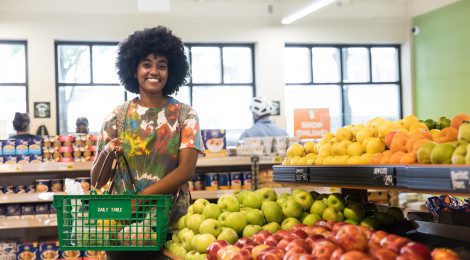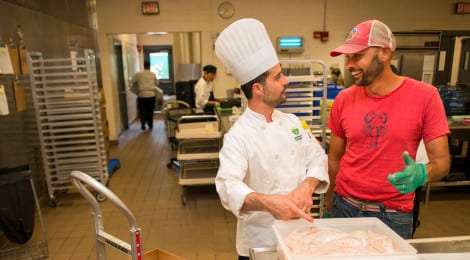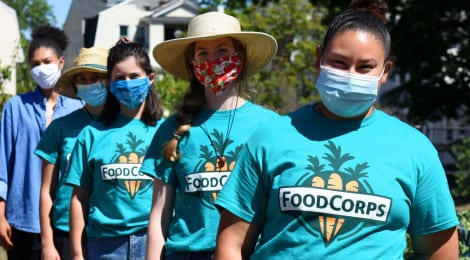
Grantee Profile
Boston Natural Areas Network
Boston’s community gardens provide more than healthy food grown close to home. They provide a place for the city’s residents to connect.
“In the city where many people live in apartment buildings and multi-unit housing, there are very few yards and very little opportunity get your hands in the soil,” says Valerie Burns, president of Boston Natural Areas Network, the city’s leading advocate for community gardens and green spaces. “That’s an essential connection not available to most people. Community gardens are where that connection can happen. People can put a seed in the garden, nurture it, and produce healthy food.”
Yet gardens and green spaces connect people not just to the land, but with other people, too.
“I had a woman say to me that after living in the neighborhood for 15 years, she was actually getting to know the people she had seen on the streets all those years – all because of the community garden,” she says.
Gardens, often started by residents themselves to rid the neighborhood of a vacant lot, flourish when people work cooperatively. That fact creates opportunities for real connections between people that wouldn’t happen in normal community life, Valerie says.
“Gardens bridge barriers like age, income, family structure, culture – all the ways people are divided along affinity groups,” she says.
Valerie has seen gardeners grow so close they share the fruits of their labor over friendly potluck dinners. Neighbors bring dishes inspired by their own cultures made with vegetables popular in the places where they grew up – whether New England or countries on the other side of the world.
“Community gardens often reflect the diversity of the community – Asians working right next to Latinos working next to Caucasians. You get a sense for the cultural differences,” Valerie says. “It’s a wonderful cross-fertilization. Ultimately, that’s what makes a neighborhood strong.”
She says that community gardens are almost a second park system, and like public parks, they must be intentionally created and protected.
“People now think of them like a library or social service center,” Valerie says. “They’re viewed as a valued element of a healthy neighborhood.”
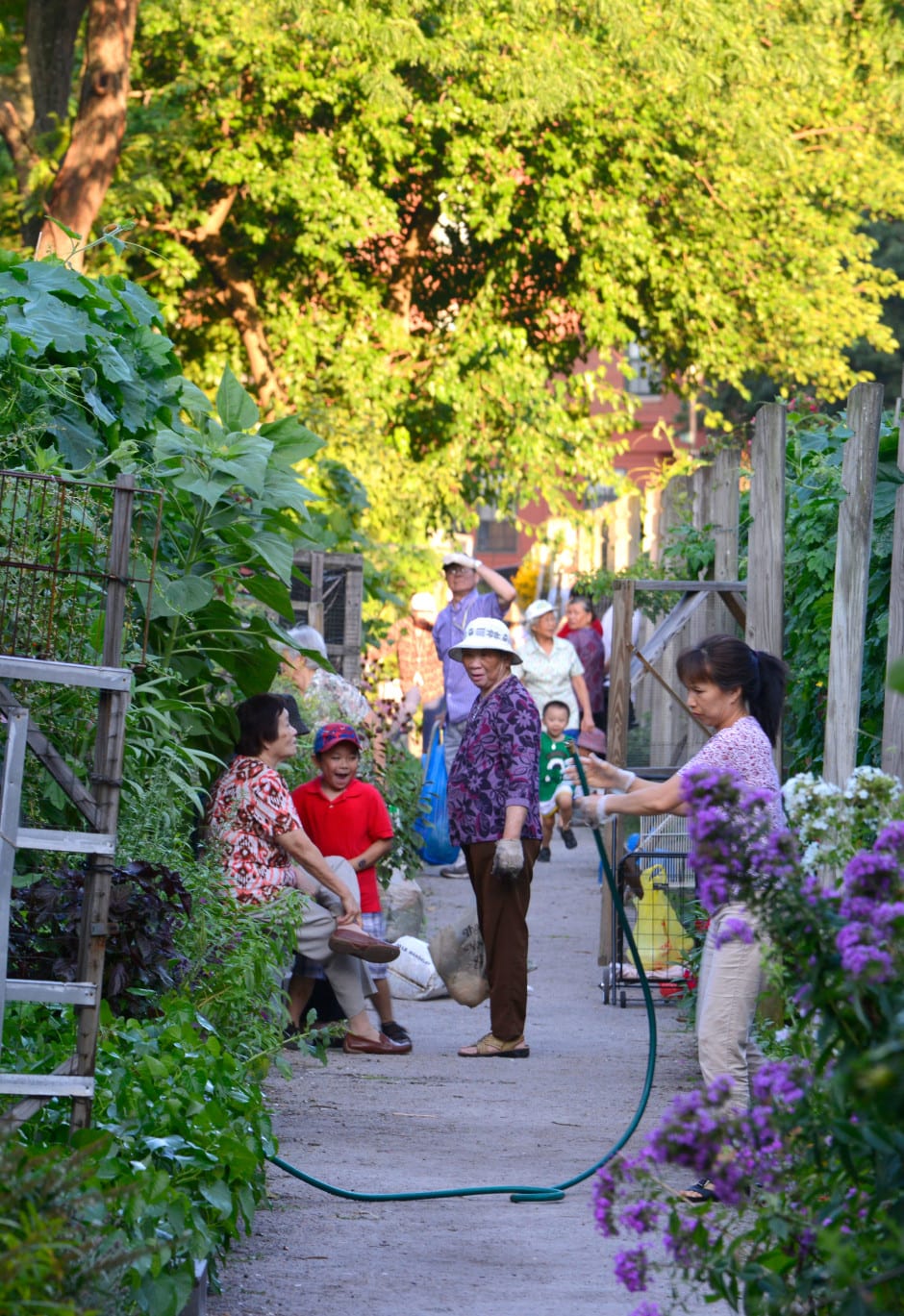
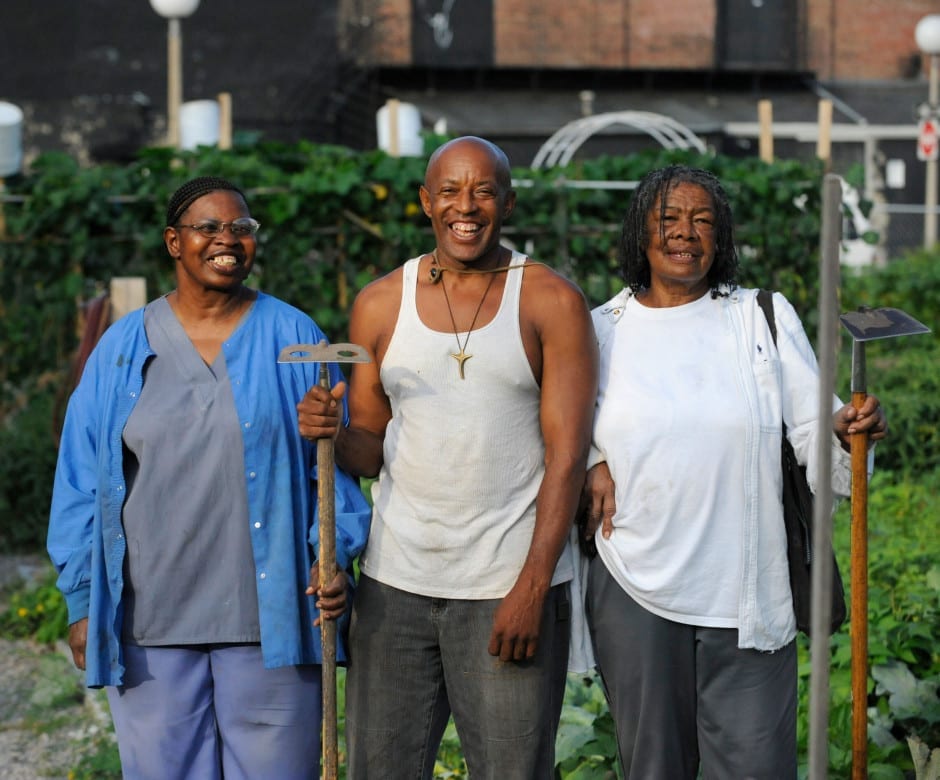
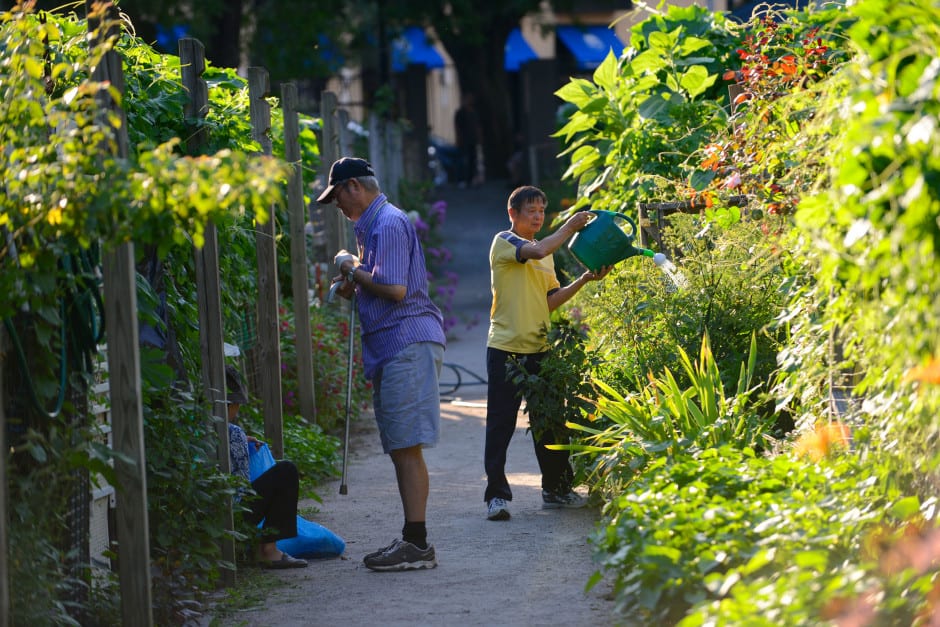
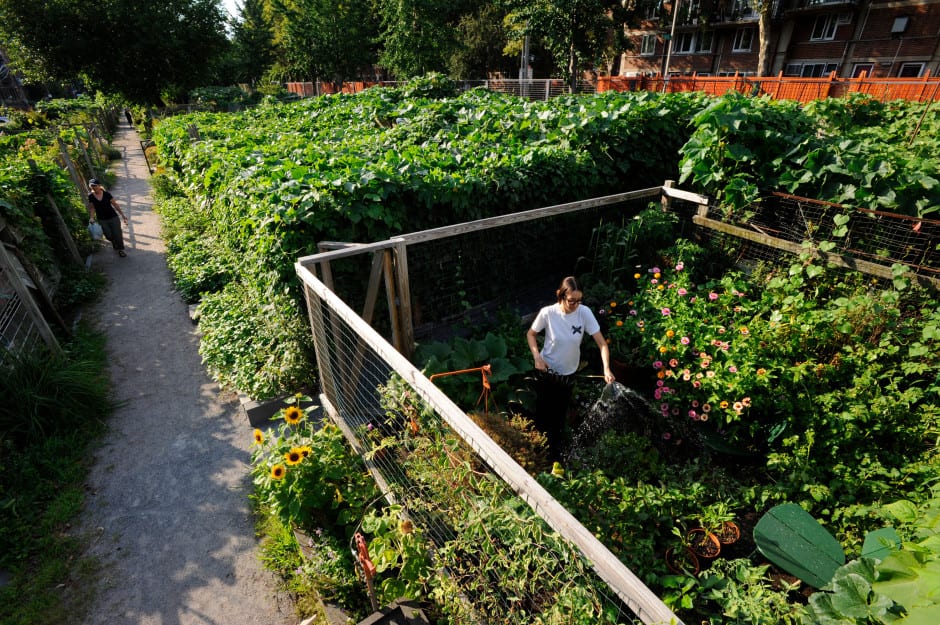
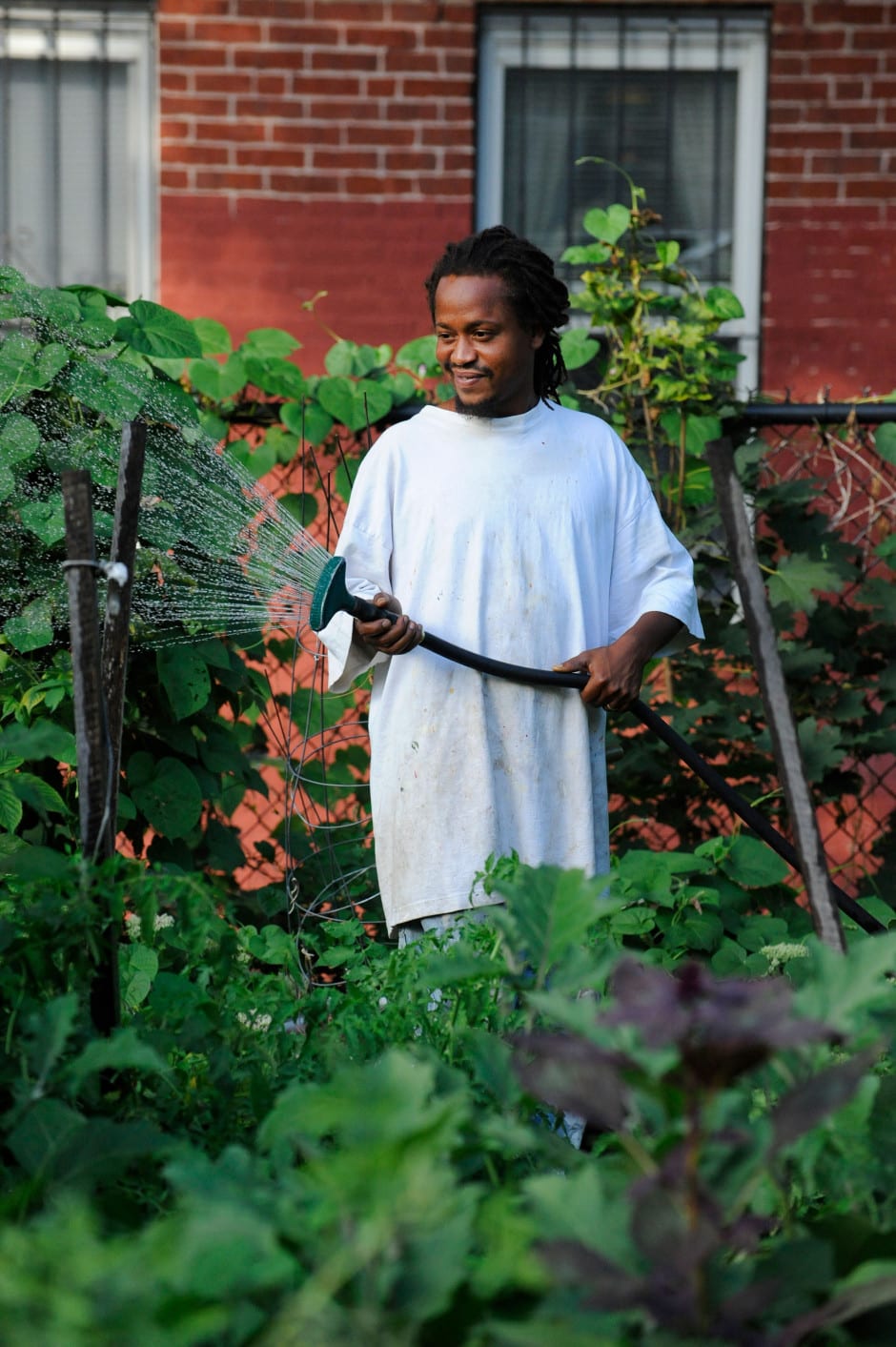
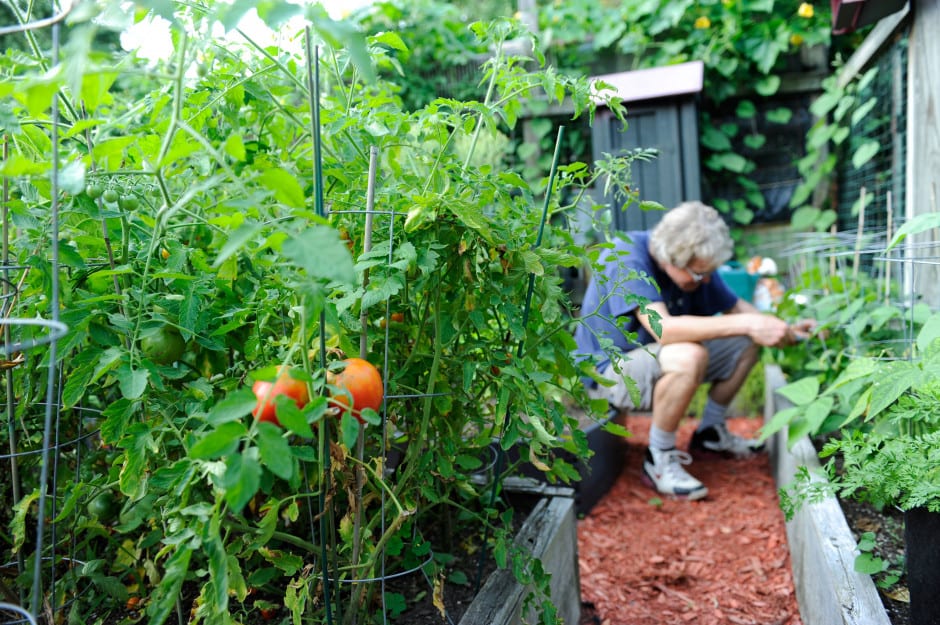
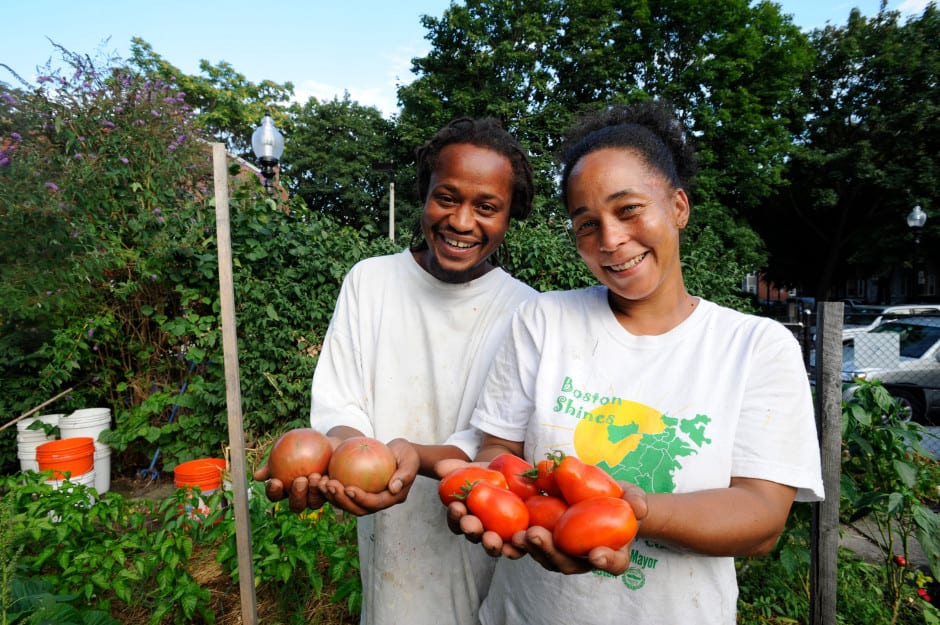
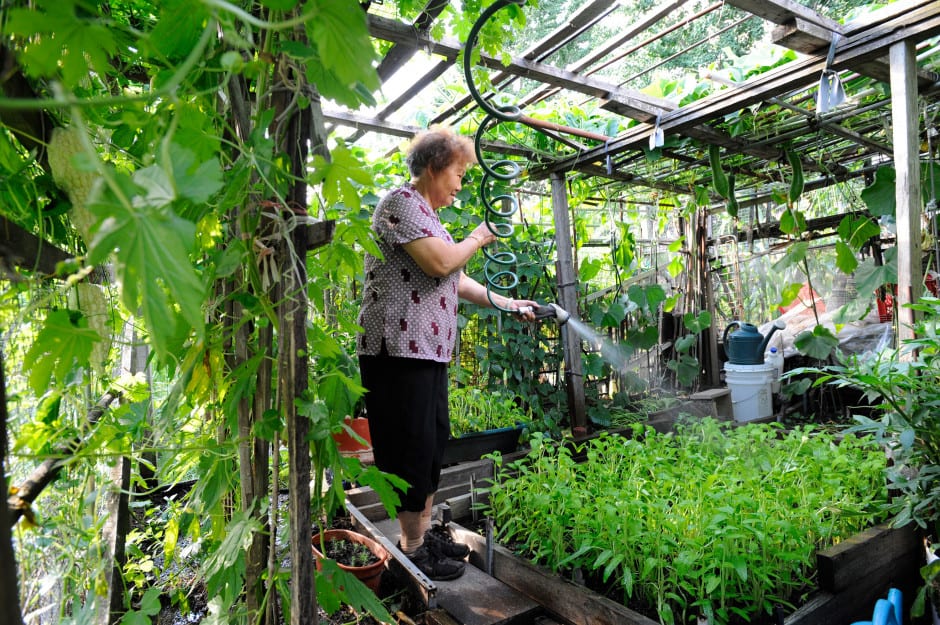
The idea that cities need green space and gardens is not new but support is especially strong in Boston. Mayor Thomas Menino, Valerie says, has long championed the benefits of a green city for public health. Most recently, the city supported the acquisition and long-term preservation of 16 community garden spaces in South End and Lower Roxbury – the largest acquisition in the history of the Boston Natural Areas Network.
The Henry P. Kendall Foundation awarded the Boston Natural Areas Network a $300,000 grant toward an endowment to ensure that the additional gardens would be maintained for many years to come.
The 16 spaces are now permanently protected for only gardening or open space use, representing a long-term investment in the urban agriculture of the city of Boston, says Courtney Bourns, the foundation’s senior program officer.
“The lack of access to land for farming and gardening is one of the primary barriers to a sustainable food system in New England, given the density of the region’s population and pressure on land for development,” Courtney says. “The decision to permanently deed these plots as community gardens and parks directly addresses this challenge.”
Because it required the full cooperation and involvement of the City of Boston, South End Lower Roxbury Open Space Land Trust and The Trustees of Reservations, the project represents the kind of partnership that can serve as a model for the future, Courtney says.
“Newcomers to neighborhoods always mention that they never expect so many community gardens when they move to Boston,” Valerie adds. “It’s a great thing for a city to be known for.”
Learn more: Boston Natural Areas Network
Gardens bridge barriers like age, income, family structure, culture – all the ways people are divided along affinity groups.
